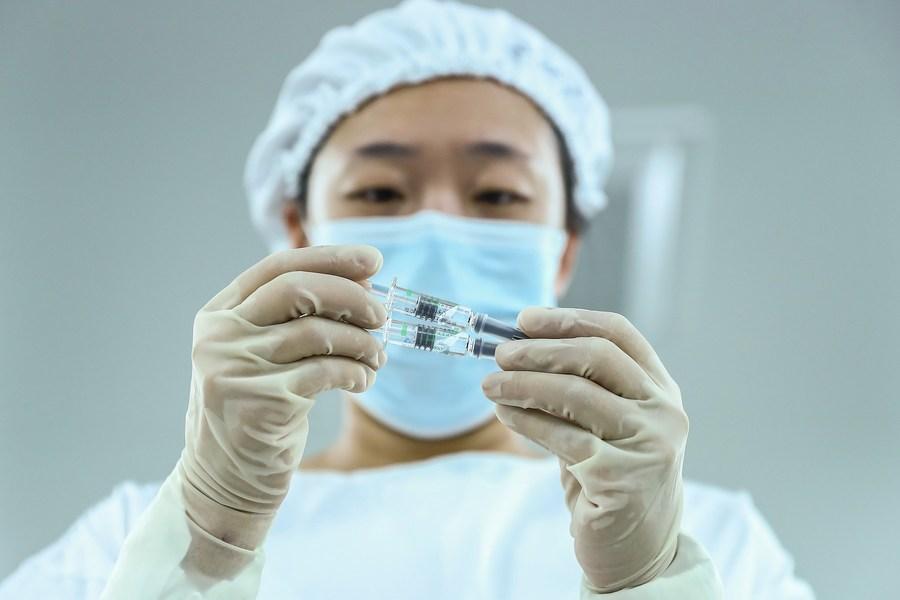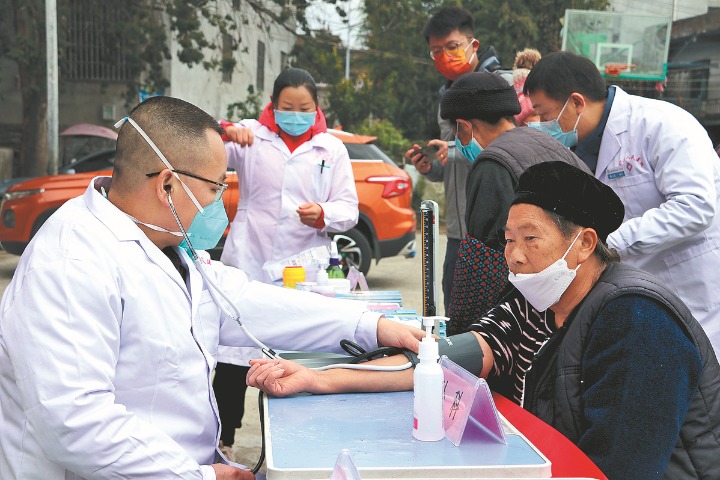Different approaches to a COVID-19 vaccine

China's five approaches to a COVID-19 vaccine
1. Inactivated vaccines
Use an inactivated virus that is treated with heat, chemicals or radiation to disable it from replicating, but can still trigger an immune response
Number of doses: 2
Domestic developers:
・ Sinopharm's Beijing Institute of Biological Products
・ Sinopharm's Wuhan Institute of Biological Products
・ Sinovac Biotech
・ Shenzhen Kangtai Biological Products
・ Chinese Academy of Medical Sciences' Institute of Medical Biology
Foreign developers:
・ Bharat Biotech (India)
・ Research Institute for Biological Safety Problems (Kazakhstan)
Traits:
・ Well-established technology used in vaccines against polio, flu and hepatitis B
・ Safe and suitable for people with compromised immune systems
・ Relatively easy to alter to tackle emerging variants
・ Booster shots might be needed
2. Viral vector vaccines based on adenoviruses
Use an adenovirus to carry the spike protein from the novel coronavirus into cells to stimulate an immune response
Number of doses: 1-2
Domestic developers:
・ CanSino Biologics and the Academy of Military Medical Sciences
Foreign developers:
・ AstraZeneca, with University of Oxford (United Kingdom)
・ Gamaleya Research Institute (Russia)
・ Janssen Pharmaceutical/Johnson& Johnson (United States)
Traits:
・ Well-established technology used to fight HIV, Ebola and tuberculosis
・ Some only require one dose for a full inoculation course
・ Previous exposure to the adenovirus could reduce effectiveness
3. Viral vector vaccines based on weakened flu viruses
Use a weakened form of flu to carry the spike protein from the novel coronavirus into cells to stimulate an immune response
Number of doses: 2
Domestic developers:
・ The University of Hong Kong, Xiamen University and Beijing Wantai Biological Pharmacy Enterprise
Foreigner developers: none reported
Traits:
・ Delivered through a nasal spray as opposed to an injection
・ Might prevent both flu and novel coronavirus infection at the same time
・ Only one such vaccine is recorded in the WHO registry of global vaccine candidates, undergoing mid-stage clinical trials
4. Recombinant subunit vaccines
Inject a subunit of virus antigen into human bodies to trigger an immune response
Number of doses: 2-3
Domestic developers:
・ Anhui Zhifei Longcom Biopharmaceutical, with Chinese Academy of Sciences' Institute of Microbiology
・ Clover Biopharmaceuticals, with British drugmaker GSK and US company Dynavax
・ West China Hospital of Sichuan University
Foreign developers:
・ Novavax (US)
・ Kentucky Bioprocessing (US)
・ The Finlay Institute (Cuba)
Traits:
・ Well-established technology used to develop vaccines for hepatitis B
・ Suitable for people with weakened immune systems
・ Need to be used with adjuvant
・ Choosing a suitable antigen combination is a complicated process
5. Nucleic acid vaccines (DNA or RNA)
Deliver genetic instructions, in the form of RNA or DNA, to cause the body's own cells to generate an immune response to the virus
Number of doses: 2
Domestic developers:
・ Academy of Military Medical Sciences, with Walvax Biotech and Suzhou Abogen Biosciences
Foreign developers:
・ Pfizer (US) and BioNTech (Germany)
・ Moderna, with National Institute of Allergy and Infectious Diseases (US)
・ CureVac (Germany)
Traits:
・ Relatively easy to alter to tackle emerging variants
・ Very high efficacy rates reported
・ Never licensed for public use before
・ Some require ultracold storage
・ Lack of suitable manufacturing infrastructure in many countries
Other promising approaches pursued by global scientists
1. Live attenuated vaccines
Deliver a weakened but still viable (live) virus to stimulate an immune response
Number of doses: 1 (expected)
Foreign developers:
・ Codagenix and Serum Institute of India (India)
・ Meissa Vaccines (US)
Traits:
・ Well-established technology used to prevent measles, mumps and rubella, chickenpox, rotavirus and yellow fever
・ Strong and long-lasting immune response
・ Might not be advised for people with compromised immune systems
・ Might require cold storage
2. Virus-like particle vaccines
Use virus-like particles that incorporate all structural proteins of the virus to trigger an immune response
Number of doses: 2
Foreign developers:
・ Medicago (Canada)
・ Serum Institute of India, Accelagen and SpyBiotech (India)
Traits:
・ Well-established technology used to develop vaccines for hepatitis B and human papilloma virus
・ Might need adjuvant and booster shots
Sources: Ministry of Science and Technology, National Health Commission, World Health Organization, Gavi Alliance
Please feel free to contact us by sending your questions to question@chinadaily.com.cn or commenting on China Daily app. We will ask experts to answer them.














